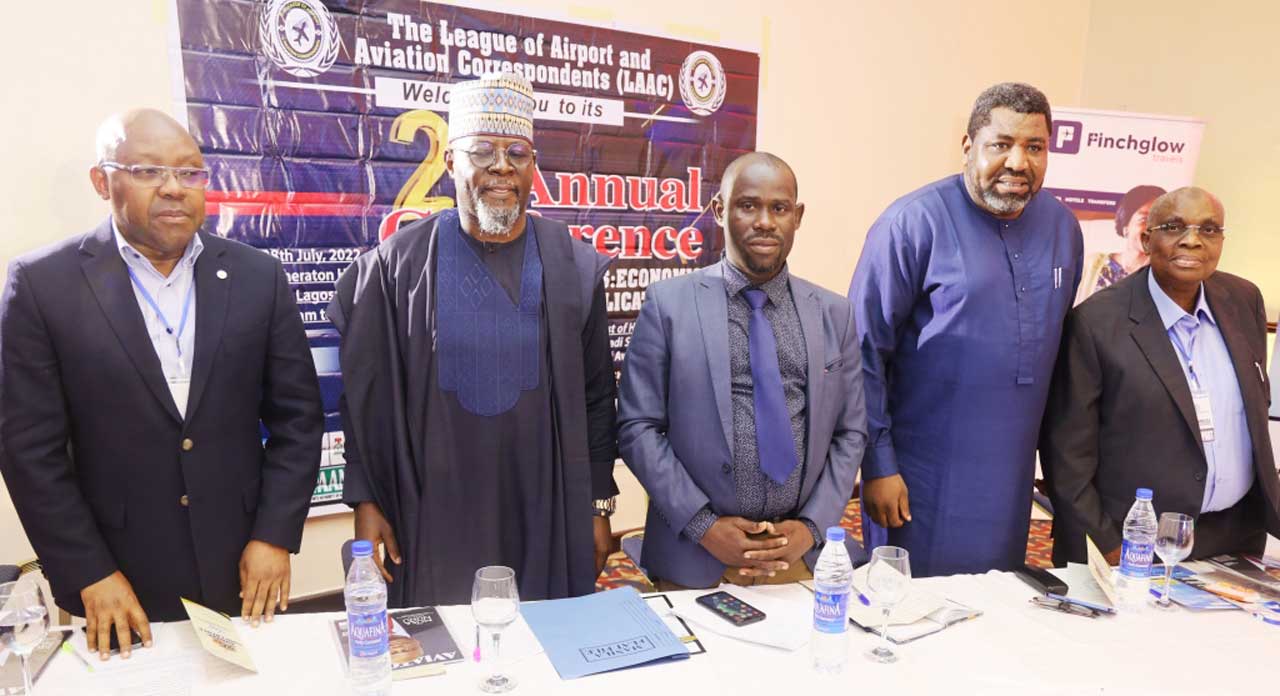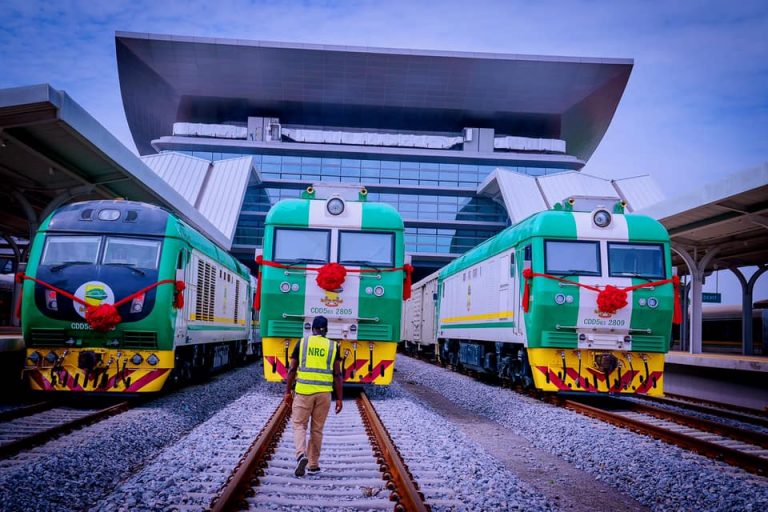
What to do with several sunset airports dotting the national landscape got the industry’s attention recently, with both service providers and airline operators lamenting enormous losses due to under-utilisation of high-end assets. But to end the sob stories, stakeholders rally all parties to think outside the box to effectively utilise assets for mutual benefits. WOLE OYEBADE reports.
Besides the galaxy of stars that adorn the skyline on a night cruise, there is more to night travel than air travellers know. At night, the winds die down and the thermal turbulence dissipates allowing for a smooth ride. Pilots can tell that they are some of those freebees that make nighttime travel the best in most parts of the world.
Unfortunately, local travellers rarely enjoy those perks in Nigeria. All the 24 airports, except four, would have retired by nightfall when most foreign carriers are the most active and international passengers are just coming into the country.
In the final analysis, the airport facilities are under-utilised as airlines operate limited hours to incur losses, while travellers miss the best hours to be in the sky.
Meeting at the 26th yearly conference of the League of Airport and Aviation Correspondents (LAAC) in Lagos recently, stakeholders were unanimous that the sunset airport phenomenon or daytime-only facilities are self-imposed economic challenges that should be tackled for aviation and the economy to grow.
Specifically, they called for a revisit of the aviation development policies to realign with economic development plan; optimisation of airport facilities beyond passenger services; and effective collaboration between service providers and airline operators to steadily extend the operating hours even at airports that need not open for 24 hours.
Assets or liabilities?
By happenstance, the Federal Airport Authority of Nigeria (FAAN) has acquired more airports than it needs or has funds to operate. While the Authority is not building new airports, state governments that want one in their domains are sinking state resources into the project, only to end up as a giveaway to FAAN.
Most recently, the Nasarawa State governor, Abdullahi Sule, got a N9.75 billion refund from the Federal Government in exchange for the new state-owned Lafia Cargo Airport for “effective usage”. Former Governor and current serving senator, Tanko Al-makura, in 2015 started the project worth N20 billion. By the time of its completion early this year, it was estimated to have gulped as much as N40 billion.
By the same logic of “effective usage”, the Federal Government is also in the process of taking over airports at Kebbi, Osubi, Dutse and Jigawa all built by their state governments.
Though the Federal Government is taking the facilities over for maximum benefits, findings showed that they are all running at a loss. Except the trio of the Murtala Muhammed International Airport (MMIA), Lagos; Nnamdi Azikiwe International Airport (NAIA), Abuja, and the Port Harcourt International Airport (PHIA), Omagwa, Rivers State, none of the other airports has sufficient revenue to cover the cost of operations. Self-evident is their gross under-utilisation nationwide.
Cumulatively, they cost FAAN at least N44.39 billion loss for keeping them in operations and overhead of 10, 000 workforce in about three years. The breakdown of revenue and expenditure of FAAN headquarters in 2017-2019 showed that the body generated a total of N16.09 billion in three years, and collected N15.02 billion. It, however, spent a total of N59.41 billion, leaving a deficit of N44.39 billion in three years.
Acting Managing Director of the Nigerian Airspace Management Agency (NAMA), Matthew Pwajok, explained that the losses were not out of place given that traffic demands into those airports far outweigh the cost of keeping them open even in daytime.
Pwajok added that all the airports are equipped for night operations and available on request by airlines that are willing to pay an additional N50, 000 per hour.
“We are capable and willing to give night services. There are 10 airports that do not have daily flights into them. They have three or five flights a week, yet they run for 12 hours on a daily basis. It is already very expensive and we have to be very realistic, which is why they are available round the clock on request. But to keep airports like Minna or Katsina open round the clock, it is not realistic,” Pwajok said.
Airlines are not spared
Chief Executive Officer of Ibom Air, George Uriesi, noted that the odds are stacked against local airlines, due to the “Nigerian conundrum”.
Uriesi noted that the Nigerian airline uses the same airplane as everyone in the world but because the operator is from Nigeria, he pays higher acquisition cost, higher cost of insurance that is three times more than in Europe, North America and Asia, uses weak naira to pay in dollars and so on.
“On top of all, you are operating in a systemically limiting environment that makes it harder for you to be as productive as your colleagues in Europe, Asia and North America.
“Let me give you a benchmark of what we have in the world. From Airbus, the global average is 9.1 to 9.7 bloc hours a day per aircraft. Some do 12 hours. In the Nigerian context, that is nine domestic flights a day. On a monthly basis, it is 275 to 292 bloc hours, and on yearly basis 3,300 to 3,500 bloc hours.
“Imagine the productivity of those airplanes, compared to ours in Nigeria where it is between 5.5 to 6.6 bloc hours per day. That is five or six hour sectors per day. That translates to 165 to 198 bloc hours a month. When you buy a new airplane, they will ask you how much you will utilise the airplane, if you say anything less than 250 hours, they will look at you as a mad person. Why did you want to buy a new airplane?
“If you use what we are doing here in this country on average, what you will get is 1980 to 2,376 bloc hours per annum. What does that translate to? The gap is three bloc hours a plane daily, 90 bloc hours a plane monthly, 1,080 bloc hours per year.
“The impact of it is a significantly reduced window for aircraft utilisation, which is a serious threat to airlines’ survivability. The number of flights we do not utilise in a day because of those limiters is plus/minus three flights. That is N12 million worth of revenue daily opportunity and I’m using N60, 000 per passenger on a 67 passenger airplane, which is very low for most airlines. That will be N4 million revenue per flight and 90 flights a month and N360 million of revenue off the table in a month for one aircraft. In a year, it is 1,000 flights and N4.3 billion per aircraft,” he said.
The way forward
Clearly, the survival of service providers and operators is dependent on creating sustainable traffic demands for effective usage of facilities and that begins with rethinking the aviation development policies.
Professor of Strategy and Development, Anthony Kila, noted that the phenomenon of sunset airports that are asleep when the world is awake is retrogressive and a challenge that should be addressed by a modern state.
Kila said more than ever before, the industry urgently needs a clearer vision and bold leadership that would think outside the box to rescue it from impending implosion.
“The way for recalibration is to redirect policies to see aviation as a basic essential service industry to the general public, rather than the pastime of the elites. That is, to have the aviation industry properly tied to the economy and treats its limiters as national economic emergencies.
“We also need collaboration among policymakers, regulators, service providers and operators, to work-out viable and sustainable aviation development programmes that properly incorporate aviation financing with its safety and security elements,” he proffered.
Group Managing Director of Finchglow Holdings, Bankole Bernard, reckoned that there must be concerted efforts at all levels to steadily maximise aeronautical and non-aeronautical services around airports to grow the immediate and larger economy.
Bernard said besides passenger services, there are other complementary services like cargo, tourism, hospitality, shopping malls and others that must be invested to effectively utilise the airports and maximise aviation potential.
Principal Managing partner at Avaero Capital Partners, Sindy Foster, added that the facilities should be subjected to feasibility study to derive data on resources needed and services that will be viable.
Foster said viability of an airport might not be immediate, “but what of the add-on benefits to the immediate environment and region?”
She challenged airlines to collaborate more to maximise their potential. “The challenge we have in Nigeria is that we have too many airlines for the volume of passengers that we actually have. It is very difficult for any individual airline to generate scale. So, that is where the collaboration comes in, that’s where code sharing comes in so that you can share the cost of operating one flight among three or four airlines, who are selling tickets on that flight.
“If you look at international airlines, quite often you see five airlines selling seats for the same flight. But here, everybody wants to be the leader. Nobody wants to collaborate. Partnership breaks down very quickly,” she said.
Chief Executive Officer of Topbrass Aviation, Capt. Roland Iyayi, added that FAAN has been proactive and engaging airlines on what they need. Airlines should further define their needs before the service providers.
“We need to segment markets in accordance with the varying capacities of the airlines. We also need to look at the policy of licensing airports in the country and in accordance with their varying capacities. The economics of operations has to be looked at along with the capacity of the airlines. That way, it will open up airports that are called unviable and naturally segment the market.
“Above all, we need the political will. We have been making the same recommendations since 2005, with white papers submitted to the Federal Government. Without the genuine will to implement those recommendations, they will remain mere ideas on how to do things differently,” Iyayi said.






